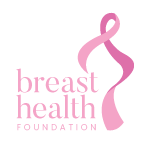Because cancer is part of your body, it is difficult to find and kill cancer cells without harming your own body. Most cancer treatments have some side-effects, but just as each patient has an individualised treatment plan, each patient may have different responses to the different treatments.
If you are undergoing cancer treatment it is important to keep in close contact with your family doctor and your specialist doctors. They will help you manage the side-effects more easily.
